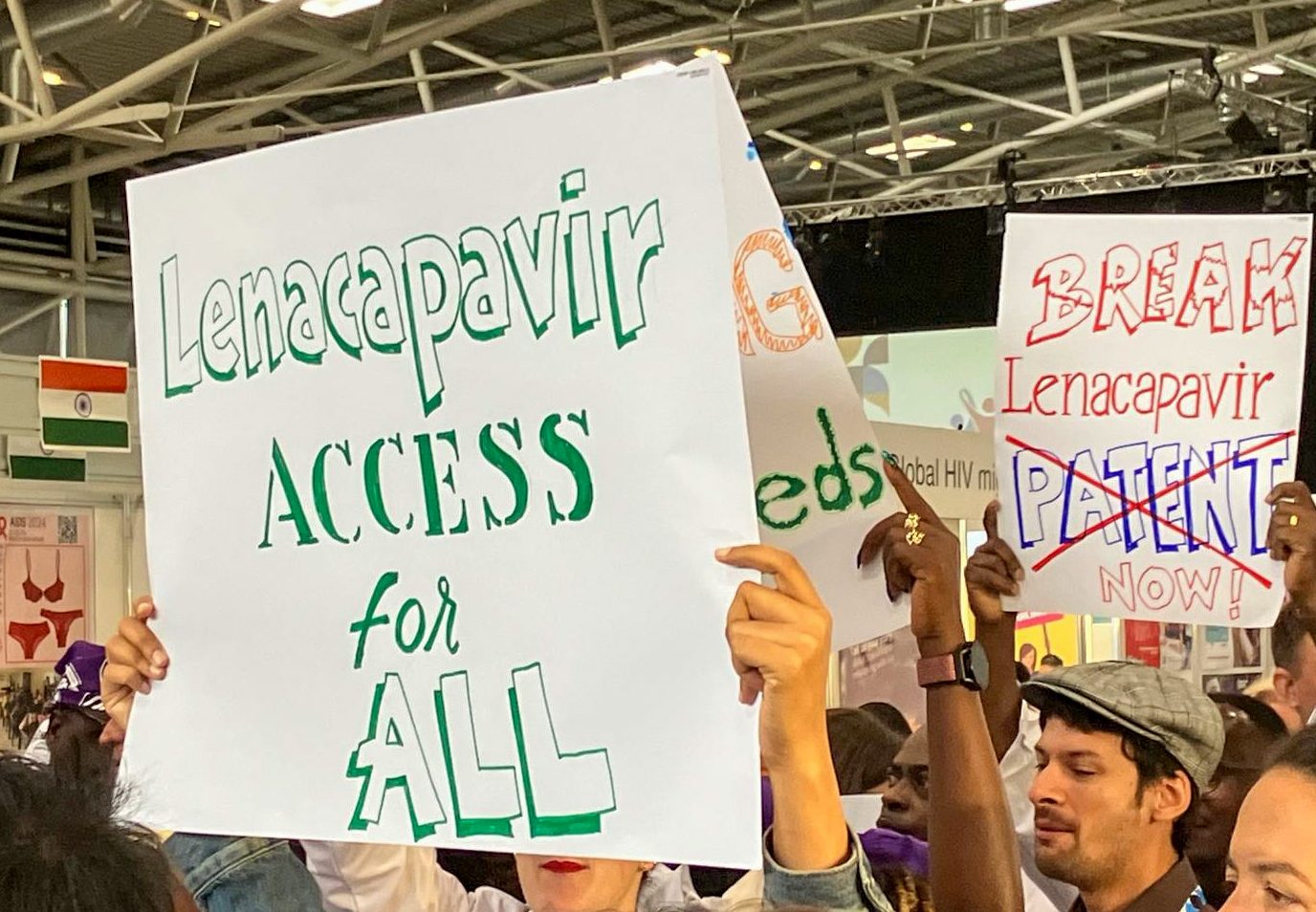Civil society organizations advocating for equitable access to HIV treatment submitted a third-party observation to the Eurasian Patent Office (EAPO), challenging the patent application for lenacapavir (LEN), a groundbreaking HIV treatment. These objections, filed in December 2024 by ITPC-EECA and a coalition of EECA partners from Armenia, Belarus, Kazakhstan, and Kyrgyzstan, focus on concerns over the patent’s validity, its potential impact on access to affordable HIV treatment, and the broader implications for healthcare in the Eastern Europe and Central Asia (EECA) region.
“If Gilead Science’s patent application regarding Lenacapavir is granted, the patent will represent another significant barrier to the affordable access to groundbreaking HIV treatment. ITPC-EECA’s third-party observation intends to prevent pharmaceutical companies from extending unfair patents and monopolizing the market, which is not in the best interest of the public,” stated Maria Shibaeva, treatment access legal specialist at ITPC-EECA.
Developed by Gilead Sciences, lenacapavir (marketed as Sunlenca in the European Union) is a promising new treatment for people living with multidrug-resistant HIV. Administered as a twice yearly injection, LEN represents a significant advancement for people living with HIV who have developed resistance to other antiretroviral therapies. Its ability to suppress the virus for up to 52 weeks and reduce new HIV infections by 96% as a preventive measure, according to a World Health Organization (WHO) report, shows its groundbreaking potential.
However, despite its clinical success, the intensive patenting to ensure monopoly on lenacapavir has sparked concerns regarding affordability and access, particularly in the EECA region, where the HIV epidemic is still on the rise.
Lenacapavir already has two patents in the territory of the EAPO for the Markush formula[1]( covering lenacapavir and for the lenacapavir compound for use in long-acting HIV therapy. They provide patent protection until 2034 and 2037, respectively. In addition, Gilead is seeking in EECA region a third patent on lenacapavir – covering its prodrug. If it is granted, the protection will last even longer – until 2042, artificially adding 8 years of patent monopoly on lenacapavir.
Challenges to Lenacapavir’s Patentability
ITPC-EECA, together with its partners, has formally opposed the LEN prodrug patent application at the EAPO due to the lack of originality and innovation in the development of the merely a new form of already known and patented drug, which should disqualify Gilead from being granted a patent.
The concept of prodrugs — biologically inactive compounds that are converted into active forms within the body — is not a new one, and the modifications made to lenacapavir’s chemical structure are seen as incremental rather than groundbreaking. These changes simply represent a logical extension of existing knowledge, rather than something “novel” or ”inventive”, which is the requirement for a patent.
Ethical and Technical Concerns
Additionally, the patent application for lenacapavir has been criticized for lacking crucial information. Key details, including the drug’s “precise composition, dosages, excipients, and routes” of administration, are missing.
These omissions raise ethical questions about the legitimacy of granting exclusive rights to the drug without fully substantiated data. For healthcare professionals to effectively use the invention, such information is essential. The absence of these details further complicates the process, casting doubt on the ethical standards of the patent application.
Impact on Access and Affordability
The opposition to the patent also mentioned critical concerns over the impact on access to HIV treatment. The price of lenacapavir is a major barrier to widespread use. At approximately $42,500 USD per person per year, the cost of Gilead’s branded version is far beyond the reach of many in middle-income and low-income countries, including those in the EECA region. In contrast, generic versions of LEN could be produced at lower prices — estimated at $63 to $93 USD per person, per year initially, and even less as production volumes increase, potentially dropping to $26 to $40 USD per person, per year.
However, if the patent is granted, it will prevent the generic production of LEN, which would restrict access to the treatment for millions of people in the EECA region, where domestic funding for HIV programs is still limited in many countries, and global financial support is critical.
HIV Crisis in EECA
According to UNAIDS, the EECA region is not on track to meet the 2030 target of ending AIDS, with new infections continuing to rise since 2010.
“Gilead’s attempt to patent multiple LEN modifications in the EECA region is a classic example of how billion-dollar pharmaceutical corporations continually prioritize profits over people. ITPC-EECA recognizes that if we don’t take action now, the affordability of groundbreaking treatments such as LEN are at risk — and this further compromises meeting UN’s targets on ending AIDS,” stated Shibaeva.
The submission of ITPC-EECA and its partner’s third-party observation underscores the urgency of ensuring affordable access to life-saving treatments. If the LEN patent is granted, it could further exacerbate the crisis, as monopolistic pricing would limit treatment availability, especially in low- and middle-income countries that are already struggling with high HIV infection rates.
[1] Markush claims consist of a generic chemical structure with multiple alternatives that allow for the protection, under a single patent, of several variants of a claimed invention. The admission of pharmaceutical patents for such claims raises complex issues because a single patent may potentially block research and development and the commercialization of up to several million molecules. [Guidelines for the Examination of Patent Applications relating to Pharmaceuticals, UNDP, 2016 p. 21]

